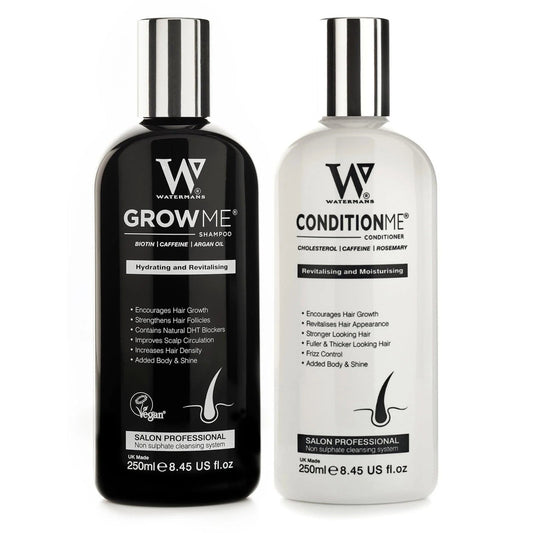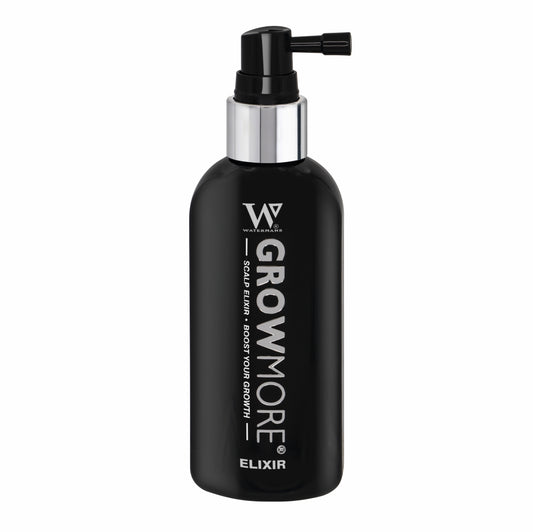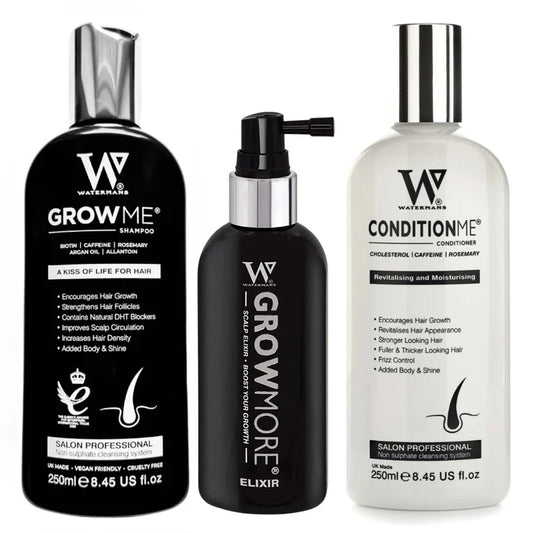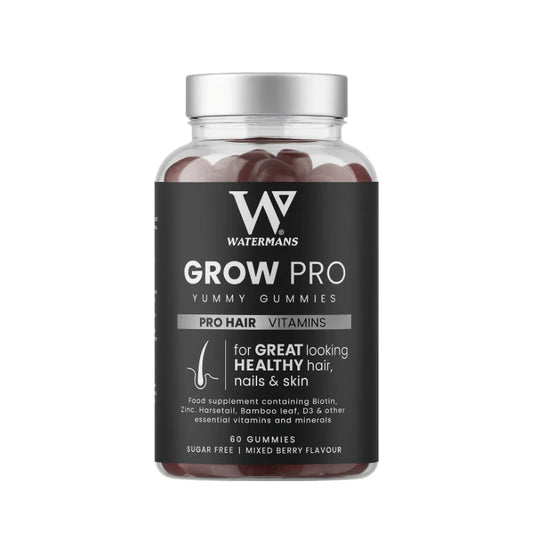Revitalize Your Hair: Winning Strategies to Combat Menopause Hair Loss
Share

Introduction to Menopause Hair Loss
Women in their 40s and 50s face many changes. Menopause brings shifts in the body and can lead to hair loss. Knowing your hair treatment paths can help you care for your hair again.
What Causes Menopause Hair Loss?
Menopause cuts down key hormones. Estrogen and progesterone fall. Lower estrogen means shorter hair growth time and thinning hair. Also, DHT binds to hair follicles. This makes them shrink over time. Stress and a changed routine can push hair loss further. Poor sleep, extra weight, and daily stress add to the load.
Key Signs of Menopause-Related Hair Loss
Women may see these signs: • Hair thins at the crown. • Hair comes off more when you brush or wash. • You see more scalp at your part. • Volume and fullness drop.
Menopause Hair Loss Treatment Options
Face hair loss with care. Each method holds its own hope.
Use Natural Hair Growth Solutions
Start with a soft shampoo. A natural shampoo helps your hair grow. Watermans Grow Me Shampoo has Biotin, Rosemary, Caffeine, Niacinamide, Argan Oil, Allantoin, and Lupin Protein. It wakes your scalp and builds volume right at the roots. Check more info here.
Hormone Replacement Therapy (HRT)
Many try HRT. This gives extra estrogen and progesterone. It may help some women find thicker hair and a stronger scalp.
Minoxidil
Minoxidil is a liquid you put on your scalp. It calls hair follicles back to life. Many people see new hair over time.
Nutritional Supplements
A good diet matters. Some supplements help hair: • Biotin helps hair grow. • Zinc repairs hair tissue. • Omega-3s keep hair soft and smooth.
Stress Management Techniques
Stress makes hair loss worse. Calm exercises like yoga, meditation, or deep breathing can cut stress quickly.
Scalp Massages
A scalp massage moves blood to your hair roots. It may spark new hair. A bit of rosemary or peppermint oil can add more help.
Hair Care Routine Adjustments
Be kind to your hair: • Pick a mild shampoo without harsh chemicals. • Skip heat tools to cut breakage. • Use soft conditioners or hair masks to keep hair wet.
Hair Transplantation
For harder cases, hair transplant surgery may work. This shifts hair follicles from thick zones to thin ones. It adds more hair in the long run.
Men's Experience with Hair Loss During Menopause
Women see these changes first. Yet, some men may notice thinner hair too. Shared stress and life changes can touch both. They can help each other with care.
Did You Know?
• Hair grows in four steps: it grows, then changes, rests, and falls. • It is normal to lose about 50 to 100 hairs a day. Menopause can make loss more clear. • Each hair has its own cycle. It rests a while before it starts to grow again.
Frequently Asked Questions (FAQs)
Q1: What is Watermans Grow Me Shampoo?
A1: It is a natural shampoo with Biotin and Rosemary. It wakes the scalp and adds body to hair.
Q2: How soon do treatments work for menopause hair loss?
A2: Many women see a change in 12 to 24 weeks.
Q3: Can menopause cause quick hair loss?
A3: Yes. Shifts in hormones can lead to fast hair fallout.
Q4: Is hair loss from menopause forever?
A4: Menopause may change hair for a long time. Yet many women see regrowth with care.
Q5: Are there home fixes for hair loss?
A5: Yes. Oils like rosemary or peppermint and masks from eggs or avocado work well.
Q6: Should I see a doctor if hair loss grows?
A6: If hair loss is fast or hard to manage, a doctor can help guide you.
Q7: Can food affect hair health during menopause?
A7: A diet with vitamins, minerals, and protein helps keep hair strong.
Q8: Does estrogen therapy help hair grow?
A8: For some women, it may help. It is best to talk with a doctor.
Q9: What lifestyle changes help with hair fullness?
A9: A balanced diet, calm routines, and scalp massages can help hair stay full.
Q10: Are there haircuts that hide thinning hair?
A10: Cuts with layers can add body. Light hair products may boost volume too.
Final Thoughts on Managing Menopause Hair Loss
Women can try many paths to care for their hair during menopause. A natural shampoo like Watermans Grow Me Shampoo can give your hair new life. A kind care routine and help from a doctor can bring back more strength. Find more on hair care and try Watermans Grow Me Shampoo here. Embrace each change and care for your hair well!



